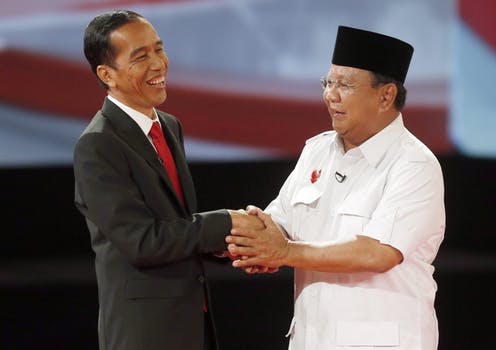Indonesian general election, especially the presidential election, which will be held in less than a month strongly draws the interest of society. Since the last election in 2014, heated arguments between the two supporters have gone through all medium of communication.
People are debating about who should lead this country and why their favourites deserve to be in this position. Social media, particularly Facebook and WhatsApp group, has become a platform where users are arguing in regards to the election. Debating activity gains public attention recently as Indonesian presidential and vice presidential debates become headlines on national mass media.
People’s interest in debate indicates that democracy in Indonesia is progressing since the citizens can appreciate the process of exchanging ideas and opinions. Unfortunately, it does not always work well.
An online debate could lead to a serious case, such as a homicide in Sampang, Madura where the murderer took the victim’s life due to the clash of opinion on presidential candidates. The general public needs to understand that debating is not just about winning arguments, but there are many positive outcomes too. The young generation, in particular, who are majority voters in this year’s election, should treat a debate activity as an integral part of their learning process.
As a matter of fact, debating is not a new thing in the Indonesian education system. At universities level, debate community is a common students group. Even senior high school students have become familiar with extracurricular activities related to the debate.
There are many tournaments conducted to provide opportunities for participants to exercise their argumentation skill. In regard to this matter, the government plays a significant role as well. National University Debating Championship (NUDC) and National School Debating Championship (NSDC) are arguably the most prestigious English debate competitions nationwide with official support from the Indonesian government.
Education institutions are also expected to encourage the learners to get involved in debating activity as it brings benefits for them. However, it should not be only limited to competitive debating for tournaments since debate skills can be developed in the classroom as well. For example, the format of group discussion and presentation will assist the students to be better in constructing arguments, delivering speeches, and responding to dissenting views.
Generally, there are at least five major advantages of debating for students. First, they can improve their critical thinking ability through argumentation. Each debate match normally has a certain topic to argue on, which is called a “motion”. Every debater needs to assess the motion critically before establishing their stance and making a further argument. It requires them to have strong analytical thinking. For students, this skill definitely helps them to have careful evaluation and judgment in their learning process.
Second, they get practical skills in public speaking. Debaters have more opportunities to build confidence in front of a large audience compared to other students. In the classroom, chances are very limited considering the time and number of students. Being a good public speaker means that they will face tasks at school or university—such as giving a presentation or making a speech—with ease.
Third, debate makes them aware of various issues such as politic, economy, culture, philosophy and so on. Most of the varsities debating systems, such as NUDC, use an “impromptu motion” in which debaters only have fifteen minutes preparation time before delivering a speech. Thus, they really have to be familiar with a wide range of topics.
Fourth, the English debate is a good platform to enhance students’ English communication skills because they are required to express their ideas in this foreign language. Having the capability to master English surely is a great asset for them since the world is getting borderless and being able to speak English is a must.
Last but not least, debating activities teach learners to respect people with different opinions and value diversity. In a match, debaters are assigned to stand on various positions, such as pro and cons. They need to see one issue through many perspectives and, at times, they have to make arguments which contradict their own personal views. A debater, therefore, is always ready to challenge their way of thinking and show respect towards the opponents.
As a conclusion, the debate has positive aspects in the Indonesian education system. It also prepares young generations to be good citizens who uphold democratic values. Government and education institution should collaborate and take an active role in supporting the debating community and ensuring the spirit of debate runs within the system of education.
Picture source: theconversation.com

